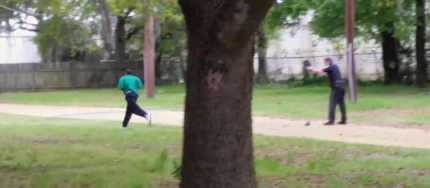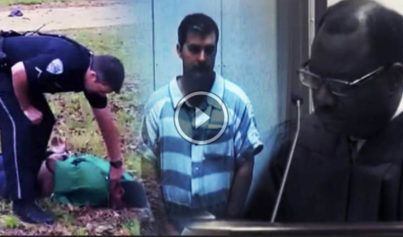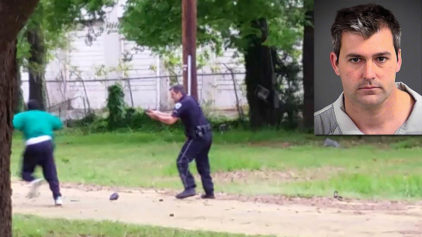A police-issued flashlight emblazoned with a Nazi symbol is at the center of a lawsuit filed by a white North Charleston police officer fired for assaulting a handcuffed Black man in 2016.
Officer Leroy Hair Jr. denied ownership of the flashlight and said he has no idea where it came from. According to the Post and Courier, a search of Leroy’s patrol car revealed the dated flashlight, which also bore the words “Wig Splitter.”
Hair was eventually arrested and accused of using excessive force against the suspect, but was acquitted by a judge who made no mention of the suspicious flashlight at trial. Although he was never accused of using the flashlight, Hair claims in a lawsuit that other policemen would use it to bludgeon minority suspects.
Hair’s attorney, Edward Phipps, said the case was the work of officials behind the scenes who used the flashlight to pin the entire incident on his client. Hair claimed it was another officer who used a flashlight to whack the unruly suspect early in the confrontation. In his complaint, the officer argues he became one of many “scapegoats” amid North Charleston’s efforts to repair its reputation as a crime-ridden community, creating an environment Hair claims pitted officers against one another.
“They were trying to hang everything on him,” Phipps said of his client. “He was made a patsy.”
The encounter unfolded on Nov. 15, 2016, when Phipps got a distress call from another officer struggling to subdue 28-year-old James Terry. Police footage captured their encounter as Hair rushed from a nearby police station to help.
Terry was still wriggling and flailing after an officer had pulled him over and handcuffed him for speeding, according to the newspaper. That’s when Officer Kyle Decedue, who is white, shoved the man onto the hood of a patrol car and hit him several times with a flashlight as he continued to fight back.
Moments later, Hair arrived as Terry was being escorted to the police car. Terry kicked one officer as they attempt to place him in the car, after which Hair climbed in on the opposite side, pulled the suspect toward him and delivered several punches near Terry’s face and head.
The brutal assault left Terry with a black eye, as seen in a booking photo.
The officer was out of a job two weeks later after video of the arrest went public, the Post and Courier reported. The Nazi flashlight was recovered from Hair’s patrol car one day later during a city inventory of the vehicle.
In his lawsuit, Hair argues the flashlight was placed there shortly before his termination amid public pressure for accountability in the case. His lawyer noted that flashlights are typically issued to patrol cruisers, not officers, and that the flashlight belonged in a cruiser that wasn’t Hair’s.
Lawyers for the North Charleston Police Department say they don’t know who’s responsible for etching the Nazi insignia into the police-issued flashlight, but denied an effort by the department to frame Hair for the alleged assault. Caroline Cleveland, a lawyer hired to fight Hair’s lawsuit, said city officials handed the flashlight over to state agents investigating the officer.
“We didn’t try to hide it,” Cleveland said. “We don’t condone it. It’s contradictory to the mission we’re trying to achieve.”
In the end, Terry was awarded a $250,000 settlement from the city.
As for Hair, his lawsuit filed in federal court Friday is seeking unspecified damages from the city of North Charleston and its mayor.


